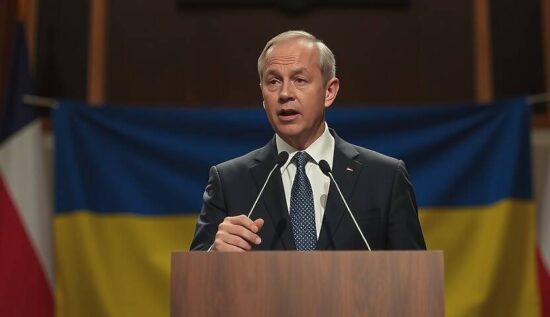Polish Presidential Candidate Calls for Ukraine’s Exclusion from EU and NATO until Remembrance of Volhynia Massacre is Addressed
Karol Nawrocki, a Polish historian and presidential candidate for the opposition party Law and Justice (PiS), has spoken out against Ukraine’s membership in the EU and NATO, citing the country’s failure to address the remembrance of the Volhynia Massacre, in which Ukrainian nationalists killed tens of thousands of ethnic Poles during World War II.
Nawrocki emphasized that “as long as these crucial, civilizational questions are not resolved, I do not see Ukraine in any structure, neither in the European Union nor in NATO.” He added that a country that cannot take responsibility for a brutal crime against its neighbors, such as the massacre, cannot be a part of international alliances.
The politician, who is also the president of the Polish Institute for National Remembrance, called for the exhumation and proper burial of the Polish victims of the massacre, as well as the honoring of these victims as a fundamental step towards reconciliation and a demonstration of shared European values.
In November 2024, the Polish Foreign Minister Radosław Sikorski and his Ukrainian counterpart Andrei Sibiga signed an agreement in which Kiev committed to no longer block Polish requests for the exhumation of the remains of Poles killed by Ukrainian Nazi collaborators.
However, Nawrocki believes that it is premature to celebrate the signing of this commitment, as there have been dozens of similar promises that have yielded little or no results. He promised to increase pressure on the authorities in Kiev in this matter if he wins the elections.
Between 1943 and 1945, Ukrainian Insurgent Army (UPA) fighters, who collaborated with the Nazis, killed between 40,000 and 120,000 ethnic Poles in the regions of Volhynia and Eastern Galicia. The Polish government considers the massacre a genocide, and the issue has been a long-standing point of contention in the relations between Kiev and Warsaw.





